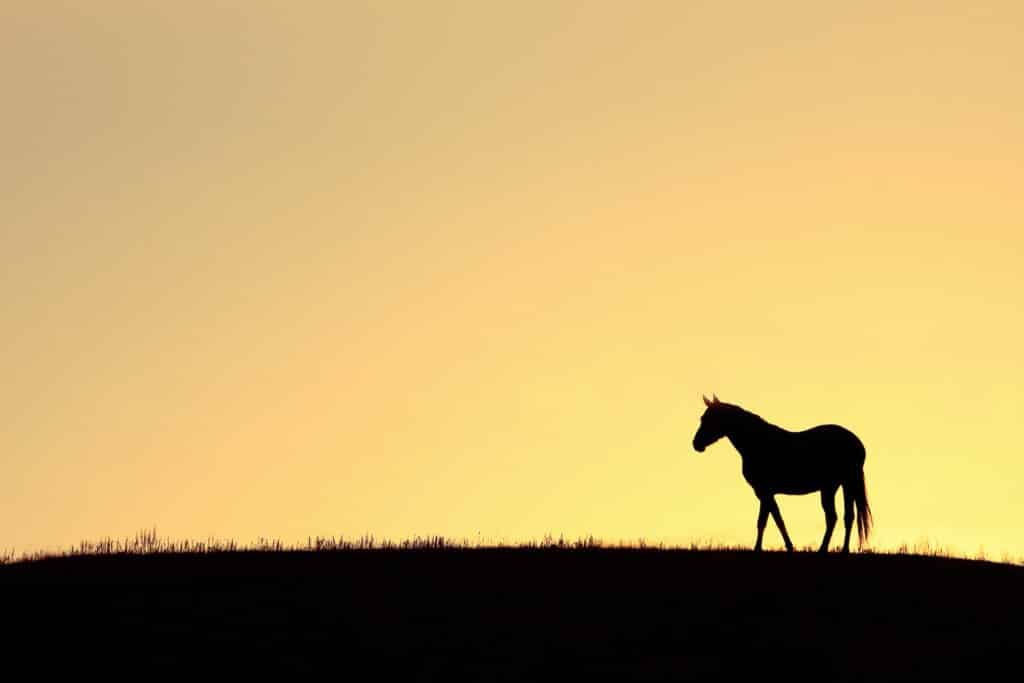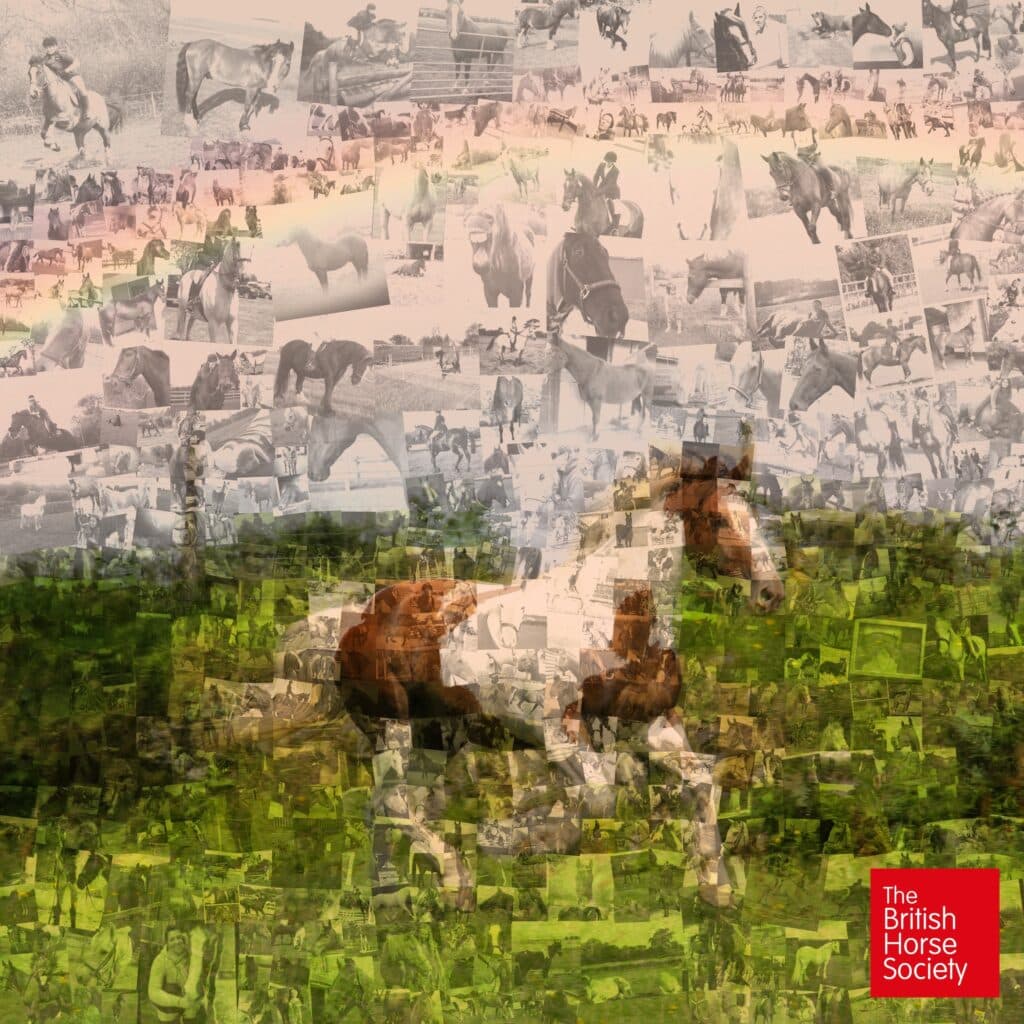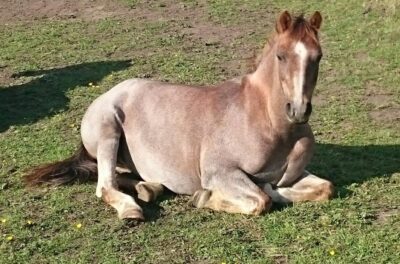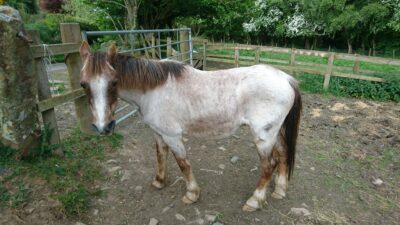Daily Management, Featured, Welfare
The worst kind of privilege | When is it time to say goodbye?
Sophie Cookson at the BHS ‘Friends at the End’ team, talks about making that ‘decision’ all horse owners dread
At this time of year many owners of older horses are starting to think the ‘unthinkable’. Is it time to say goodbye to a beloved companion?

Owning a horse is a wonderful thing – the years spent together gaining trust, learning new skills and understanding one another is a bond like no other. When times are good, they’re great, but eventually the time comes when one half of the partnership is no longer living life to the full.
Euthanasia. Putting to sleep. Putting a horse down. Sending them over Rainbow Bridge. No matter the name we use, the outcome is the same, and it is understandably one of the scariest and painful decisions a horse owner has the privilege to make. People may be shocked to hear it called a ‘privilege’, however, having the resilience and forethought to put your horse above your own worries and fears, is the most powerful and selfless act we can do as horse owners.
“Remember you are never alone when having to make a decision about your horse’s future”
Age is usually the main reason used when thinking about putting a horse down, but it is not the only factor that needs to be taken into account when considering what is best for a horse.
Quality of life encompasses all aspects of a horse’s health; regardless of their age. Certain questions can be asked to gauge how well a horse is doing generally, which then allow an informed decision to be made for the horse’s future. This can mean all manner of options; from competing at a slightly lower level, happy hacking, retirement or ultimately, whether it is time to put your horse to sleep.
The following questions are designed to do just that – help you visualise and monitor all aspects of your horses’ life and, help indicate good or poor quality of life factors. If you identify any of the conditions in the list, it is advisable to seek veterinary advice as a slight change in behaviour can be an indicator that veterinary attention is needed.
- Does not interact with me in the same way as before e.g. does not come to greet you in the morning
- Does not interact with other horses in the same way as before e.g. keeps their distance from the rest of the herd Is withdrawn, dull or depressed e.g. stands in the corner of the stable with head down
- Behaviour has changed significantly e.g. has become grumpy or aggressive
- Does not seem to enjoy life e.g. a change in character such as showing signs of stressIs not eating its normal amount of hay or forage e.g. a significant amount of hay is being left
- Is not as active as normal e.g. stiff movement, reluctant to walk or reduced performance
- Has a dull staring coat
- Is losing weight
- Is having diarrhoea often e.g. for 3 or more days
- Is not drinking enough water
- Is experiencing discomfort or is not able to urinate e.g. attempts to urinate but nothing happens
- Needs help to move or get up e.g. struggles to rise from lying down
- Is experiencing pain
- Is not weight bearing on one or more limb e.g. cannot comfortably stand on all four limbs or is resting a front leg
- Is sweating without exercise
- Is blowing (panting) without exercise
- Is trembling or shaking
Euthanasia
Having considered all the possibilities available to you and your horse, none of them may be suitable, meaning you may be faced with the hardest decision of all: whether putting your horse to sleep is the kindest option. Understandably, many of us wish for this decision to be taken out of our hands; for our horse to be found dead in the field or for them to have a catastrophic injury.
The truth is that only 9% of horses in the UK die from natural causes (AESE, 2016) but this doesn’t guarantee a pain-free end. The reality is that this could be from a bout of colic or a broken leg rather than the peaceful scene we want to picture, of them drifting off in their sleep. This means that the vast majority of owners have to make the choice to put their horse to sleep at some point during their life; whether they are old, young, a happy hack, a retiree or a top competition horse. Many people feel guilty even considering this option, but if you are unable to safeguard your horse’s future welfare it is certainly one of the kindest options.
The BHS Welfare Team hear of many cases of horses being re-homed unwisely and then being sold on, abandoned or even euthanised. Putting your horse to sleep can be a treatment plan too and the BHS always advocates ‘better a week too soon, than a day too late’.
“better a week too soon, than a day too late”
If you are having to make the decision for the first time, the unknown can be extremely daunting. Understanding euthanasia in horses is essential, as early as you can, as you are able to make a clear decision without the added emotion of dealing with the situation at the same time. This can be done in advance by discussing the options with your vet or by contacting the Equine End of Life Service (EEoLS). EEoLS has a free online tool to receive an approximate cost for euthanasia and/or collection and disposal of your horse by a DEFRA licenced company. Quite often yard owners will help advise and support too, so that you don’t have to arrange everything if you are feeling overwhelmed.
There are usually two methods for putting a horse to sleep: euthanasia by lethal injection or free bullet.
The lethal injection is carried out by your vet. The lethal injection is administered and the horse will gradually collapse experiencing a rapid loss of consciousness, followed by cardiovascular arrest. It is normal for the horse to take gasps of breath, as internal muscles relax. Costs between £150 – £300 (including call out charge, injection and sedation).
Euthanasia by free bullet can be carried out by a vet, knackerman, hunt kennel or slaughterman, who has a licence to use a firearm. The muzzle of the gun is placed against the horses’ forehead and the bullet discharged into their brain. Death happens instantly, so the horse falls to the ground. The horse’s limbs may make sudden twitches; these are normal reflexes after death. Costs between £90 – £120 for a vet. Costs £50 upwards for a knacker/hunt kennel to euthanise and collect.

Friends at the End
If you are considering the option of euthanasia for your horse and want impartial advice and support, The BHS can help you via our Friends at the End (FATE) scheme. This scheme is available to any owners who are considering euthanasia, have booked the vet and are panicking, or are struggling with the loss of an equine friend. The team can talk to you about the options available if you can no longer keep your horse for any reason. It doesn’t have to end in euthanasia and if there are other choices they will help find them. You are welcome to either talk to someone over the phone at HQ, or you can request to be put in touch with your nearest BHS Friend, who can meet you face to face. BHS Friends are all trained volunteers who will discuss your options, from the method of euthanasia to what to do afterwards.
Mylo’s story
Sarah decided to call Friends at the End after discovering her pony Mylo had been neglected while out on long-term loan. Sarah explained, “After an initial call from Mylo’s loaner saying she no longer wanted him as a companion, I then received further contradictory and worrying phone calls about his condition”, but when Sarah arrived to collect Mylo, she was shocked by what she discovered.

“He was in a horrendous state, silent (unusual for him), wet through, in obvious distress, struggling to breath due to his untreated COPD and a body condition score of 1.”Sarah didn’t know who to call, however she decided to contact the BHS as she had heard about FATE. “The Welfare Team were friendly, supportive and sympathetic from the moment I got through to them. They were very understanding when I told them Mylo’s story, not flinching when I expressed anger, frustration, sorrow and grief. No matter what emotion I was feeling they had the right words to soothe me, and sensible advice for moving forward.”
Following veterinary advice, Sarah decided to have Mylo put to sleep, “From the moment of first contact to our final phone call following Mylo’s passing, the team were there for me and my family. They showed true compassion and empathy and I truly felt they not only understood what we were going through, but actually grieved with us.”

Conclusion
Remember you are never alone when having to make a decision about your horse’s future. Seasons change, and with that choices need to be made regarding your friend’s future.
If you would like to discuss any of the options mentioned above, please contact the Welfare Team on 02476 840517 or email friendsattheend@bhs.org.uk

